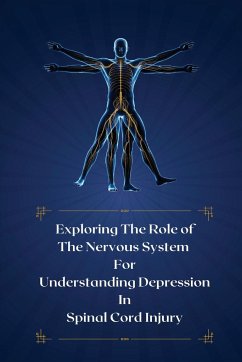The Neurovisceral Integration theory conceptualizes the nervous system's role in understanding health and well-being. The theory describes a set of neural structures, including the central and the autonomic nervous system involved in generating goaloriented responses (Thayer & Lane, 2000, 2009). These goal-oriented responses regulate the affect and cognitive processes (Thayer & Lane, 2009) influencing mental health. The thesis explores the nervous system's role in depression in spinal cord injury. The Neurovisceral Integration theory postulates that the central and autonomic nervous system(CNS-ANS) interact in affect and cognitive processes. This CNS-ANS interaction inhibits ongoing behavior, providing regulation and flexibility for goaloriented behavior(Thayer & Lane, 2000, 2009). Affect is a psychophysiological construct and studied using the dimension of valence and arousal.(Appelhans & Luecken, 2006a; Kuppens et al., 2013; Thayer & Lane, 2000). Valence denotes the individual's understanding of the pleasantness and unpleasantness of a stimulus, whereas arousal denotes the activation of the autonomic nervous system in response to the stimuli. (Hagemann et al., 2003a; Thayer, Hansen, Saus-Rose, et al., 2009; Thayer & Lane, 2000, 2009; Thayer & Siegle, 2002). Cognition refers to the mental processes such as thinking, problem-solving, and decision-making that benefit from inhibitory control. The inhibitory control is required for an individual to shift attention from existing behavior to goal-oriented behavior (Thayer & Lane, 2009).
Hinweis: Dieser Artikel kann nur an eine deutsche Lieferadresse ausgeliefert werden.
Hinweis: Dieser Artikel kann nur an eine deutsche Lieferadresse ausgeliefert werden.








